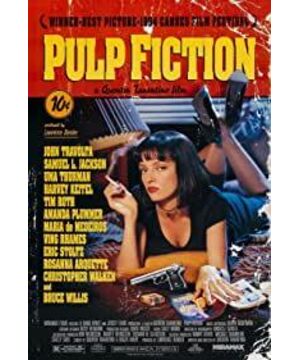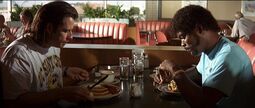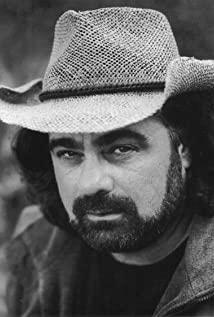Bullshit first. A large number of lines with erotic and vulgar vocabulary, boundless gossip, and dialogue without purpose and theme have become a subversion of reading and writing. Compared with Quentin's films, the dialogues used in the noir films of the 1950s sound so sunny, as if they are telling a warm thing, and people unconsciously believe that the so-called "film noir" is also Nothing but the aesthetic shock of that era. I've never understood why Quentin puts so many pointless lines into the plot and it's not tiresome, but quite enjoyable. This is certainly not a question for the literary world, and Pulp Fiction gave me the answer: the lines are meaningless, but they sound defiant and amoral. Rebellion is nothing more than rebelling against the vocabulary that should be regulated by the normal social order. Just like the beginning of the movie, men and women are discussing what is the most risky place for robbery. In fact, it is a kind of vocabulary resistance. The film will The role and discourse that becomes the antithesis is put in place, and then the appearance of moral taboos is formed, and this resistance is formed. And anti-morality, that is, the vulgarization, pornography, foul language of the dialogue, and of course, the gossip of the big figures in the virtual movie, which forms the circle of people in the movie, and also communicates with other people through the film medium. The circle of people formed some kind of exciting exchange, and actually people were willing to listen to these words because they had no moral standards, there was no order, and people were temporarily liberated from their circles while watching the movie.
But "Pulp Fiction" does not make morality disappear. It is anti-morality, and it is only against the superficial order of language and behavior. In fact, it starts from the boxer's dream, to the boxer's encounter with Masha, and then to the black killer to the robber. To interpret the Bible is to use movies to re-establish one's own order and morality. This kind of morality is based on violence, language and Christ, mixed with the most primitive thinking mode of blood. Violence, lots of blood, gunshots, and murderous scenes that feel darkly humorous. It's only in a Quentin movie that we get to see a scene where we kill a character we think is hateful without saying a word of nonsense, and that's what makes Quentinian violence so desirable.
In "Pulp Fiction", violence is often accompanied by black humor. The episode where Masha's girlfriend took too many drugs and was pumped with adrenaline has been cited by countless film theory textbooks, but the problem is, how to use this scene in Dismantling as a case will only increase the pain of scholars, because if the director does not consider this switching method to be a kind of creation from the beginning, but just matches the language symbols that the scene should have, then this case is included in the textbook as if Taking it out of context is equally meaningless. This bridge is obviously a humorous plot with some kind of violence, but it not only makes people feel a kind of vague irony of female characters, but also shows a kind of strange murder under the overall plot of the movie. Similarly, the dark humor in Pulp Fiction is also surprising and unimaginable. The white killer's gun went off and the small characters were killed by mistake. The whole scene was like a reverse of the world, and it started to focus on how to clean up the dead body and how to get rid of the car, so we except Shocked by the plasma in the car, there was little else to do. Quentin's violent aesthetics originate from no burden, no responsibility, no reason, and no order. As long as the person deserves to die in the eyes of the parties involved, then he will die, and the state of death is very satisfactory to the audience, while the death of the small character feels uncomfortable. It feels crazy, it's ridiculous. But Pulp Fiction is unique in that it describes the faith of Christ.
The film was cut into playing cards by the director, just to cover up a very simple idea, those who believe in Jesus live forever, and those who don't go to hell. The "Bible" read by the black killer eventually became his life-saving straw to avoid the scourge of killing, while the white killer was killed by the boxer because he did not believe in miracles and continued to work for the gang. Even the most vulgar story, if it incorporates the content of faith, it will make people see the other side: it is nothing more than trying to make people see the struggle of the author's thoughts, and it is nothing more than trying to make people have The power of some kind of visual indictment of society.
View more about Pulp Fiction reviews











